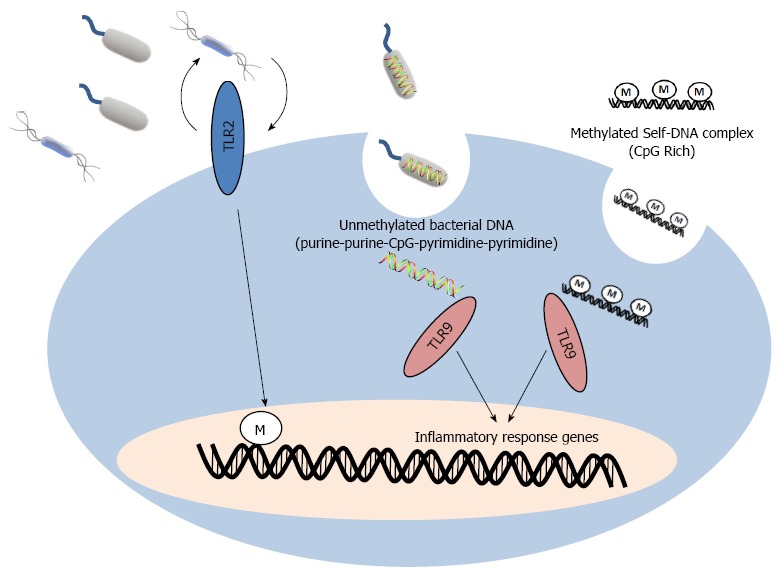Figure 2.

Host genetics and epigenetics alterations by commensal bacterial and self-DNA. Alterations in intestinal microflora or host pathogen recognition functions, such as toll-like receptor (TLR)2, directly affect host DNA methylation. Endocytosis of bacterial and release of unmethylated bacterial DNA into host cell triggers inflammatory response via TLR9. Strong activation requires a purine-purine-CpG-pyrimidine-pyrimidine bacterial DNA motif. Endocytosis of CpG rich methylated self-DNA also activates TLR9 to induce similar inflammatory response via TLR9, but with on a less magnitude compared to stimulation via bacterial DNA.
